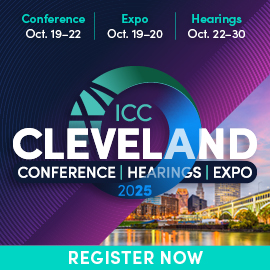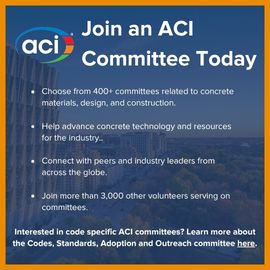
Code Council Releases New IGCC Public Version 2.0
![]() Revised paragraph five; posted Dec. 8, 2010
Revised paragraph five; posted Dec. 8, 2010
USGBC Greenbuild announcement highlights downloadable key provisions and components for baseline mandatory construction regulations supported by six industry leaders
The International Code Council today unveiled its latest edition of the International Green Construction Code (IGCC), known as IGCC Public Version 2.0, at the annual U.S. Green Building Council’s “Greenbuild” conference. Cooperating sponsors of the IGCC are the American Institute of Architects, ASTM International, the American Society of Heating, Refrigerating and Air-Conditioning Engineers (ASHRAE), the U.S. Green Building Council (USGBC) and the Illuminating Engineering Society (IES).
At the Greenbuild announcement Code Council Chief Executive Officer Richard P. Weiland said, “IGCC Version 2.0 is provided as a resource tool for jurisdictions considering adoption or amendment of regulations for green and high-performance construction. The document is available as a free download on the Code Council’s website at www.iccsafe.org/igccv2. Public Version 2.0 reflects the work of the IGCC Public Hearings Committee, which conducted a review of 1,500 comments and nearly 120 hours of testimony during eight days of public hearings in Chicago last August.”
The IGCC applies to new and existing, traditional and high-performance buildings. It includes ANSI/ASHRAE/USGBC/IES Standard 189.1 as a jurisdictional compliance option. Coordinated with the ICC family of codes, the IGCC is designed to go beyond traditional code requirements for communities that are pursuing a sustainability goal.
The most significant revision made by the Committee occurred in the area of energy conservation. References to Total Annual Net Energy Use (TANEU) in Version 1.0 were replaced with a Zero Energy Performance Index (zEPI), requiring buildings to use no more than 51 percent of the energy allowable in the 2000 International Energy Conservation Code. In addition, the Committee revisited the formula regarding jurisdictional project electives, now requiring jurisdictions to enforce at least one and up to 14 electives, instead of allowing a jurisdiction to opt out of enforcing any project electives by choosing zero.
Of particular interest to the code enforcement community are the provisions addressing commissioning. Appliance information, radon mitigation and documentation requirements, were added to the commissioning provisions to ensure the health and safety of building occupants.
Other key changes in Public Version 2.0 include:
- A 20 percent water savings beyond U.S. federal standards for water closets in residential settings;
- New requirements for identification and removal of materials containing asbestos;
- Land use regulations including new provisions addressing flood risk, development limitations related to “greenfields,” use of turf grass and minimum landfill diversion requirements;
- Clarification of responsibilities from the registered design professional to the owner to prevent potential conflicts with state and local requirements; and
- Greater consistency with industry standards for air handling systems.
Weiland hailed the release of Version 2.0 as “another step in providing tools now for jurisdictions to integrate their sustainability programs with the tested safety language of the family of International Codes. The diversity of the participants in our development process has yielded a creative and unique document that is immediately applicable.”
The IGCC development process now moves to two hearings in 2011. Code change proposals for Version 2.0 are due to the Code Council by January 3. Those proposals will be heard at the Code Development Hearings in May, to be held in Dallas. More information on submitting proposals can be found at www.iccsafe.org/IGCC/PV2Development.
The actions at that hearing will form the basis for Final Action Hearings to be held in October 2011in Phoenix. The final version of the IGCC will be issued in early 2012.
Organizations, jurisdictions and individuals wishing to state their public support for the IGCC may register on the IGCC website at www.iccsafe.org/igcc. Ongoing participation by interested parties is encouraged throughout the development process, including providing testimony at hearings and submitting comments for consideration.
The International Code Council, a membership association dedicated to building safety, fire prevention and energy efficiency, develops the codes used to construct residential and commercial buildings, including homes and schools. Most U.S. cities, counties and states choose the International Codes, building safety codes developed by the International Code Council. The International Codes also serve as the basis for construction of federal properties around the world, and as a reference for many nations outside the United States.








